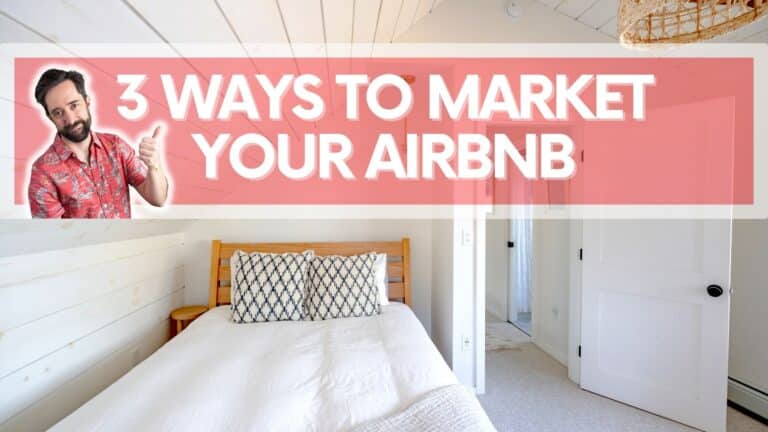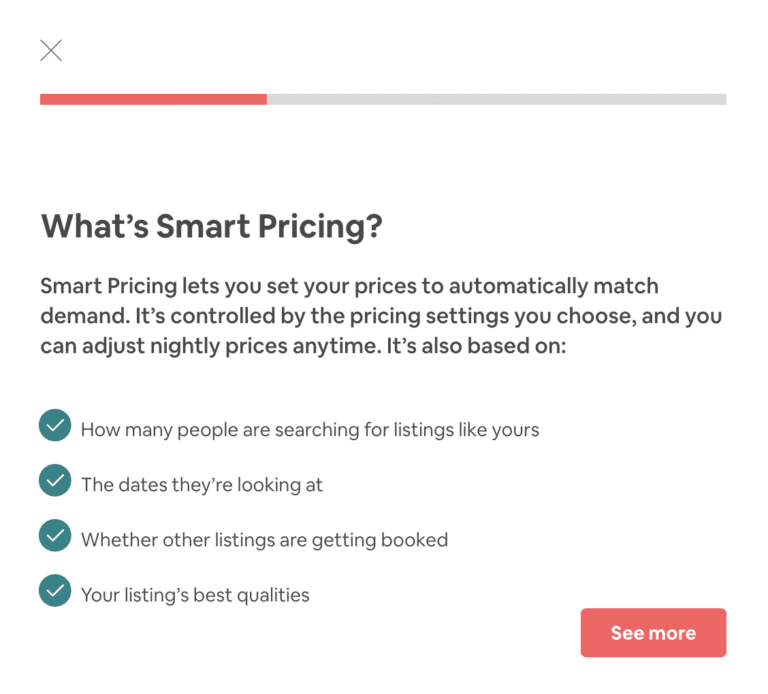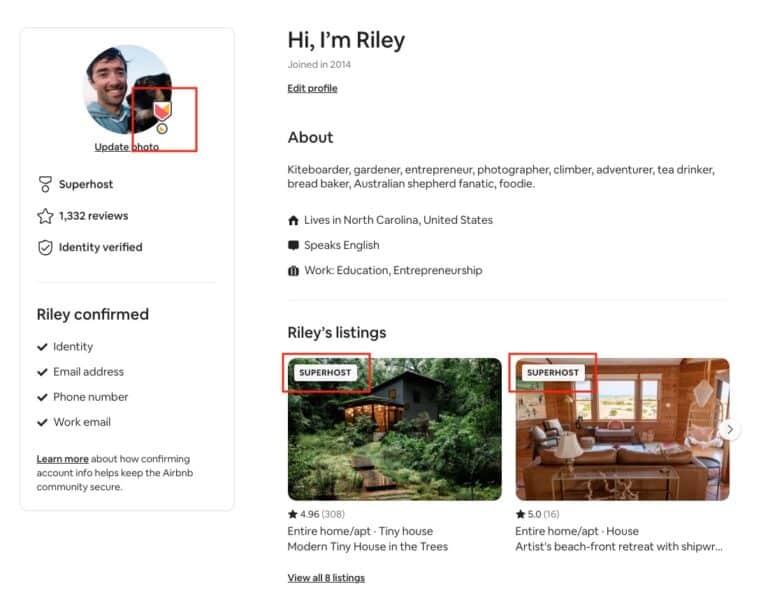How to say no without saying no to your airbnb guest
For me saying no is HARD, but there are ways to do it without angering or upsetting your Airbnb guests. I try hard not to disappoint my guests, or anyone really, and for a long time saying no felt like I was creating conflict and disappointment for my guests and I wanted to flee from that scenario as quickly as possible. So what’s this all about? We say no to our friends, partners, kids, and pets all the time easy-peasy right? In hospitality, it’s a little more nuanced than that because your guests don’t have to like you and they don’t have any context or rapport to give you the benefit of the doubt so if you don’t approach your communication with them in the correct way you could find yourself in a really stressful and financially costly situation.
Why do you want to learn how to say no to your Airbnb guests?
The short answer is that you are going to say no to your guests regularly and if you don’t learn how to do it properly it is going to make being an Airbnb host a miserable experience. We all want to have fun meeting guests, giving them tips about our city or town, and creating a good experience for them right?
What are common predictable questions from guests
There will be times when you will need to say no urgently and forcefully but the vast majority of them will be casual requests and there are important techniques you can use to make it systematized and easy. The number one most frequent question I receive is whether I will remove my cancellation policy, whether I actually use a professional cleaning service, if they can bring extra guests, or if they can pay outside of the Airbnb platform to avoid fees.
These are easy questions to manage, right? I have my answers all pre-written on the Airbnb website so I barely have to think about them. I want having an Airbnb rental property to be as fun and automated as possible that which most certainly means sticking to my cancellation policy, using professional cleaners, and never and I mean NEVER taking payment outside of the Airbnb platform/website.
When do you have to say no to an Airbnb guest?
You’re an Airbnb host and you’ve just had potential guests request something that you can’t or don’t want to do. Can they have a “small party” in your home? Can they have a party in your Airbnb? Can they bring ten dogs to your house? One of my favorites, was a guest requesting a dumpster be dropped at my house because they were hoping to use my kitchen as a commercial prep kitchen for a music festival!
A guest asked if they could ship a box of candles to our home because they wanted to fill the home with candles for their partner’s arrival. Friends make fun of me because guys aren’t supposed to love rom-coms but I love a candle-filled house as much as the next rom-com-loving person! However, candles and my Airbnbs don’t play nicely and my hard-working cleaners HATE managing melty wax all over everything. These examples are a bit on the dramatic side but there are also tons of scenarios that are boring and easy to manage like “Can I park three cars in the driveway, can I have a photo shoot in your house, can you decorate your house for a birthday party?” Etc.
How NOT to say no
If there’s one thing you take away from this it’s that you shouldn’t just blurt out NO to your guests.
The most common challenge people have when it comes to saying no, is that they either don’t know how to say it without sounding rude, or they end up angering or upsetting the person they’re saying no to. Another big challenge is that people often have a hard time saying no because they don’t want to disappoint others or they don’t want to seem like they’re not accommodating. As hosts, we often take guests’ actions WAY way too personally.
Please understand your guests don’t particularly care about you at all they just want to have a great visit to your location and are hoping your Airbnb is going to help make that happen. Ask yourself: what mental block do you have when it comes to saying no? Is it conflict, not wanting to disappoint your guest, being too busy to make any changes whatsoever, or being afraid someone will retaliate against you in the reviews or against your Airbnb property? For me, it’s wanting to avoid conflict and disappointment from guests. I internalize way too much stress to have that type of conflict regularly tourn bad in my life.
How to say no without saying no to your Airbnb guest
There’s A (not-so) new technique that everyone should use all the time and I like to call it a hospitality-friendly technique. It starts with a phrase I’ve used for about 20 years while working as a server in fine dining restaurants, a wedding photographer, and tons as an Airbnb host, and it’s literally starting your response with “I wish I could…” If you just blurt out NO to your guests they are going to feel like scorned teenagers and we all know how we felt as scorned teenagers right? We don’t want those monsters in our vacation rental, do we? However, if we appeal to our guest’s rational and emotional brains we can move through from saying no to helping them find a solution that works for everyone and that’s what great hosting is all about.
What is the key to the hospitality-forward approach?
When it comes to all things hospitality, empathy is key. By understanding your guests’ needs and feelings, you’ll be able to better assess how to handle difficult situations that may arise during their stay. In addition, by empathizing with your guests’ needs you can avoid conflict and create a more positive experience for everyone involved. Your guests are hoping you’re going to say yes to whatever they request so when you don’t you need to phrase it in a way that doesn’t start a fight. I specifically thank people for making requests before, during, and after they visit my Airbnb.
Here’s an example of how to use the hospitality-forward technique:
A guest asks if they can bring their dog to your Airbnb. You don’t allow pets in your home.
You could say: “Thanks so much for reaching out. I really wish I could accommodate your furry family member but we just don’t allow pets in our home because of (insert reason here)” And don’t say “because I hate dogs” People traveling with their pets love their pets usually more than people so if you say something negative here they will judge you for it.
This response is short, to the point, doesn’t leave much room for discussion, and it doesn’t come across as harsh or unaccommodating.
A guest asks: “We’re having a tiny birthday celebration for our 10-year-old. Do you mind if we use confetti and glitter guns in the yard? We promise to clean up afterward.”
Me: “Thanks so much for asking. I wish I could say yes but we just can’t allow confetti or glitter guns in our yard because we’ve learned it’s virtually impossible to clean up and our really really hard-working cleaners are very adamant we do not have confetti or glitter in our home.”
Help solve your guest’s problems
Once you’ve declined a request from your guest you want to help them come up with a solution. You’ve thanked them for reaching out, thanked them for their understanding, apologized for not being able to say yes, NOW you want to be a great host and help find an alternate and acceptable solution to their problem. Do you know what’s a great alternative to glitter and confetti outside? Lavender and bird seed. Not only will they keep your guests happy but it’s not garbage being sprayed all over the place. What’s a great solution to wax candles? LED candles and string lights. What’s a great solution to not allowing your guests to bring their dogs? Suggest a pet boarding place that’s really posh, or if appropriate gently suggest they could potentially find alternate accommodations that are better equipped to host dogs. Most guests will be gracious but when you first begin hosting there will definitely be a learning curve, and that’s okay! Whether you have a full-on vacation rental or you renting the spare bedroom in your own home this process will help in all scenarios.
Set expectations early through your Airbnb listing
“An ounce of prevention is worth a pound of cure.” One of the keys to running a sustainable and successful Airbnb setting clear expectations for your guests, and having very clear boundaries at the same time. One of the biggest conflicts that occur between hosts and guests is when either party has an expectation that isn’t aligned with the reality of the situation. The solution = help your guests understand what to expect.
When you set expectations for your guests in your Airbnb listing you can avoid a lot of headaches down the road. Experienced hosts know that if they don’t allow pets, say so in their listing. If glitter and confetti are a no-go, inform guests and put them in your house rules (I do!). The more specific you are about your expectations the better. This way when future guests you to do something that’s not in line with your house rules you can refer them back to your listing and say “Thanks for asking, and I’m so sorry to say, but we don’t allow (insert rule here)” And then you can help them find an alternate solution as we talked about earlier.
In Conclusion: The benefits of focusing on empathy and hospitality when saying no
It’s important to be specific about your expectations for guests in your Airbnb listing, and it’s also important to be hospitality-forward when declining requests from guests. When you phrase things in a way that’s positive and helpful, you can avoid conflict and keep your guests happy. Keep in mind your guests are just as nervous about staying in your home as you are about them causing problems. Phrase things in an understanding way “I wish I could…” is my phrase of choice. I also thank people for reaching out all the time.
When hosting on Airbnb, Vrbo, or any other platform you will need to say no to guests a lot more than you think, but you want to do it in a way that doesn’t make them feel unheard and resentful of you. You want them to shrug it off, or find an even better alternative to what they were asking about in the first place. When you do this successfully your guests will have a fantastic stay, they will follow your house rules and policies, and they will leave you positive reviews, specifically the all-important five-star review.
Thanks for reading and happy hosting friends!







